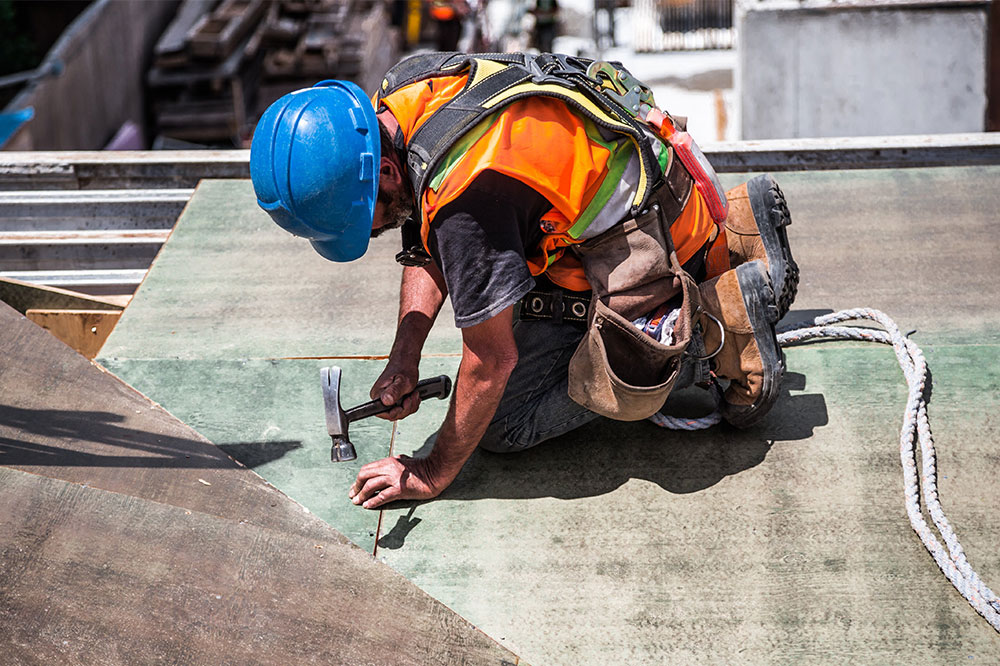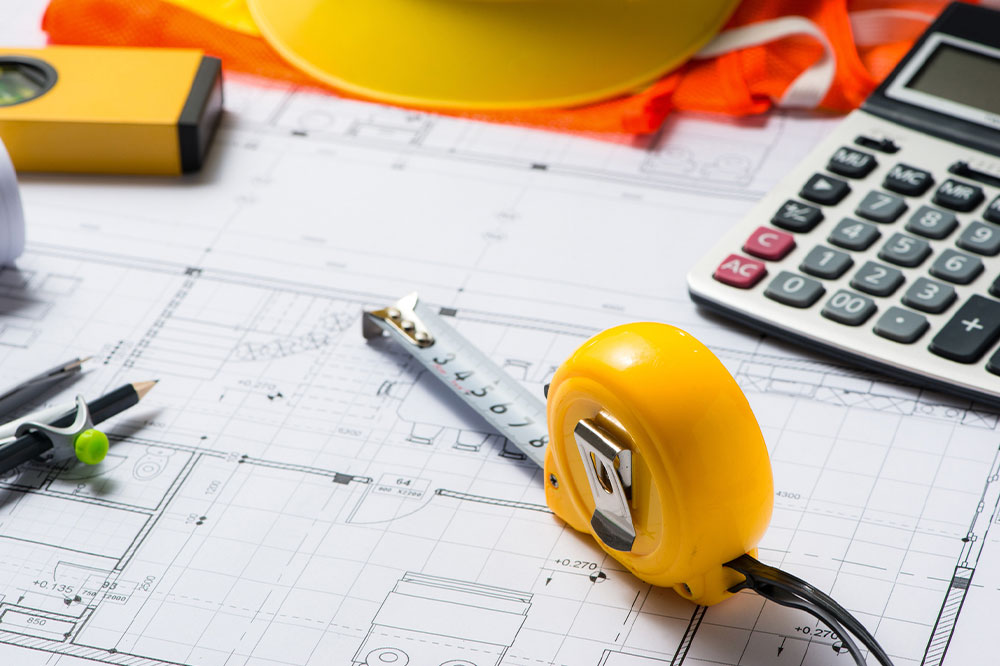Comprehensive Guide to Winning Construction Bids: Strategies for Success
This comprehensive guide offers construction contractors essential tips and strategies to craft winning bids. From understanding project scope to presentation techniques, learn how to improve your bidding process, increase success rates, and establish a trustworthy reputation in the industry. Emphasizing accuracy, professionalism, and strategic planning, this article is a valuable resource for firms aiming to secure more construction projects and grow sustainably.

Comprehensive Guide to Winning Construction Bids: Strategies for Success
Engaging in construction bidding is a critical stage for any construction company or contractor aiming to secure new projects and expand their footprint in the industry. A well-prepared bid not only demonstrates your technical capability and professionalism but also strategically positions you to win contracts that are financially viable and aligned with your business goals. The process involves an intricate balance of understanding project requirements, market dynamics, client expectations, and your own company's capacity. This comprehensive guide breaks down essential tips, proven strategies, and step-by-step procedures to help you craft compelling bids that stand out and increase your chances of success.
Understanding the Fundamentals of Construction Bidding
Construction bidding is the formal process by which contractors submit proposals to undertake specific building projects. These proposals need to convincingly address costs, timelines, resources, and technical aspects while aligning with client expectations. The ultimate goal of a bidding process is to secure project approval, ensure profitability, and forge long-term relationships within the industry. An effective bid must balance accuracy, competitiveness, clarity, and professionalism to resonate with decision-makers and stand out amidst competition.
Key Factors to Consider When Preparing a Construction Bid
Understanding the Project Scope and Value
Thoroughly review all project documentation, including blueprints, specifications, and scope of work. Clarify ambiguities by communicating with project owners or architects if needed. Comprehending the full scope enables accurate estimation of costs and resources, reducing risks of overruns and delays. Recognizing the project’s complexity, importance, and strategic value helps align your bidding strategy accordingly.
Researching Client Preferences and Expectations
Differentiating your bid by aligning with client priorities enhances your chances of success. Study their bidding history, preferred project timelines, and decision criteria. Tailor your proposal to emphasize strengths that resonate with the client, such as sustainability, innovative techniques, or budget efficiency. Building rapport and trust through prior interactions or references can also influence decision-makers favorably.
Familiarity with Bidding Procedures and Protocols
Every client or project may have distinct bidding processes, submission formats, and deadlines. Understanding each step—whether it’s pre-qualification, bid submission, or bid opening—ensures compliance and reduces errors. Stay informed about procedural updates, document submission portals, and required documentation such as insurance certificates or safety records.
Monitoring Local Regulations and Market Conditions
Stay updated on regional building codes, environmental regulations, and legal requirements that could impact your bid. Market conditions, such as material costs, labor availability, and economic trends, influence your pricing strategy. Being aware of regional nuances helps prevent compliance issues and positions your bid as solid and reliable.
Assessing Your Current Workload and Capacity
Before committing to new projects, evaluate your existing workload and resource availability. Overextending can compromise quality or cause project delays, damaging your reputation. Carefully align new bids with your company’s capacity to ensure timely and quality delivery, which is critical for future business opportunities and credibility.
Step-by-Step Construction Bidding Process
Review and Obtain Project Blueprints
This is the foundational step. Analyze all technical drawings, specifications, and scope documents meticulously. Understanding every detail enables precise cost estimation and resource planning. Engage engineers or specialists if needed to interpret complex diagrams or requirements.
Identify and Contact Suitable Contractors and Suppliers
Leverage online directories, industry contacts, and procurement platforms to find reliable subcontractors and material suppliers. Request quotes to compare pricing and delivery timelines. Building strong relationships with trusted vendors can offer cost advantages and reliable service during project execution.
Prepare and Submit a Detailed Bid Proposal
Your proposal should comprehensively cover all aspects: materials, labor, equipment costs, project timelines, risk factors, and project management strategies. Be transparent about costs and assumptions. Ensure the bid is well-organized, free of errors, and formatted professionally to convey credibility and attention to detail.
Writing Effective Bid Language and Presentation
Clarity and Precision
Use clear, straightforward language to explain your offerings, avoiding jargon or ambiguous terms. Be specific about deliverables, timelines, and costs. Clear communication reduces misunderstandings and sets accurate expectations.
Conciseness and Professionalism
Keep sentences concise and paragraphs well-structured. Use a professional tone throughout. Visual presentation matters—use headings, bullet points, and highlighting to make key information stand out.
Highlighting Unique Value Propositions
Demonstrate your company's strengths, such as specialized expertise, innovative solutions, or cost efficiencies. Show how your bid aligns with or surpasses client expectations, making your proposal memorable.
Leveraging Past Bids and Experience for Future Success
Use Successful Past Bids as References
Highlight comparable projects you have completed successfully. Include client testimonials or case studies to substantiate your capabilities and reliability.
Learn from Unsuccessful Bids
Review and analyze bids that did not win. Identify weaknesses or overlooked aspects and incorporate lessons learned into future proposals. Continuous improvement raises your success rate over time.
Utilize Resources to Improve Quality
Use bid templates, estimation software, and industry data to enhance professionalism. Consider engaging bid consultants or mentors for feedback and guidance.
The Importance of Accurate Units and Measurements
Precision Matters
Double-check all measurements and units to ensure consistency with project blueprints. Incorrect units can lead to costly mistakes, delays, or disputes.
How to Ensure Accuracy
Use reliable tools for measurement and cross-verify figures. Consistent units across all documentation foster professionalism and trust.
Impact on Reputation
Meticulous attention to detail in units reflects your company's professionalism. It establishes credibility and strengthens client confidence in your bids.
Presentation Skills and Bid Organization
Neat and Well-Organized Documents
Arrange your bid documents logically, with clear headings, sections, and supporting attachments. A tidy presentation shows professionalism and respect for the client’s time.
Showcase Your Skills and Capabilities
Use your bid to emphasize your expertise, past successes, and what differentiates your firm. Highlight your team’s qualifications and experience.
Address Potential Challenges
Preemptively identify possible hurdles and propose feasible solutions. Demonstrating proactive problem-solving increases your credibility.
Confident Delivery
Present your bid with confidence, whether in written form or during oral presentations. Confidence inspires trust and persuades clients of your competence.
By meticulously crafting your construction bid using these strategies, you enhance your chances of winning lucrative projects and establishing a solid reputation in the construction industry. Success in bidding isn’t just about the lowest price but about professionalism, accuracy, and strategic planning. Invest time in understanding your client’s needs, refining your proposal, and presenting it convincingly. Over time, these practices will help you build a successful bidding record, attract more clients, and grow your business sustainably.




